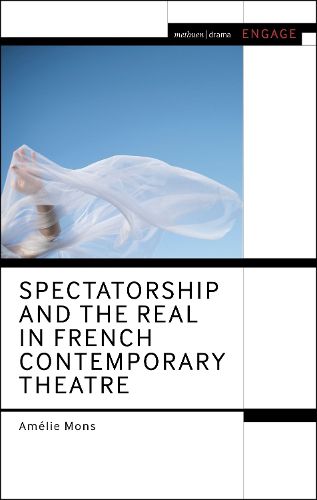Readings Newsletter
Become a Readings Member to make your shopping experience even easier.
Sign in or sign up for free!
You’re not far away from qualifying for FREE standard shipping within Australia
You’ve qualified for FREE standard shipping within Australia
The cart is loading…






This book explores how avant-garde directors in French theatre play on their audiences' frustration to generate an encounter with the real.
Focusing on the work of directors such as Gisele Vienne, Jan Lauwers, Rodrigo Garcia, Jan Fabre and Romeo Castellucci, the book looks at how these directors manipulate their audiences to experience a raw perception of materiality and physical bodies on stage, set within narratives of mystery and the uncanny. This approach has led to these directors' work described as 'obscene', 'pretentious', 'demagogic' and 'provocative'.
Because of this, the act of spectating and the nature of spectatorship itself becomes complicated and tends to leave French audiences doubting traditional codes and practices. It leads to the directors' work being misjudged and to contradictory discourses between critics, researchers and directors.
The book examines how directors implement strategies on stage to trigger such experiences, while evaluating how problematic these strategies are. It develops critical and philosophical tools that help spectators extend their field of perception and better engage with these contemporary practices. And, in doing so, it analyses a fascinating paradox: the French theatre scene hosting both active avant-garde practices, especially when it comes to spectator experience, and strong rejections from audiences.
$9.00 standard shipping within Australia
FREE standard shipping within Australia for orders over $100.00
Express & International shipping calculated at checkout
This book explores how avant-garde directors in French theatre play on their audiences' frustration to generate an encounter with the real.
Focusing on the work of directors such as Gisele Vienne, Jan Lauwers, Rodrigo Garcia, Jan Fabre and Romeo Castellucci, the book looks at how these directors manipulate their audiences to experience a raw perception of materiality and physical bodies on stage, set within narratives of mystery and the uncanny. This approach has led to these directors' work described as 'obscene', 'pretentious', 'demagogic' and 'provocative'.
Because of this, the act of spectating and the nature of spectatorship itself becomes complicated and tends to leave French audiences doubting traditional codes and practices. It leads to the directors' work being misjudged and to contradictory discourses between critics, researchers and directors.
The book examines how directors implement strategies on stage to trigger such experiences, while evaluating how problematic these strategies are. It develops critical and philosophical tools that help spectators extend their field of perception and better engage with these contemporary practices. And, in doing so, it analyses a fascinating paradox: the French theatre scene hosting both active avant-garde practices, especially when it comes to spectator experience, and strong rejections from audiences.